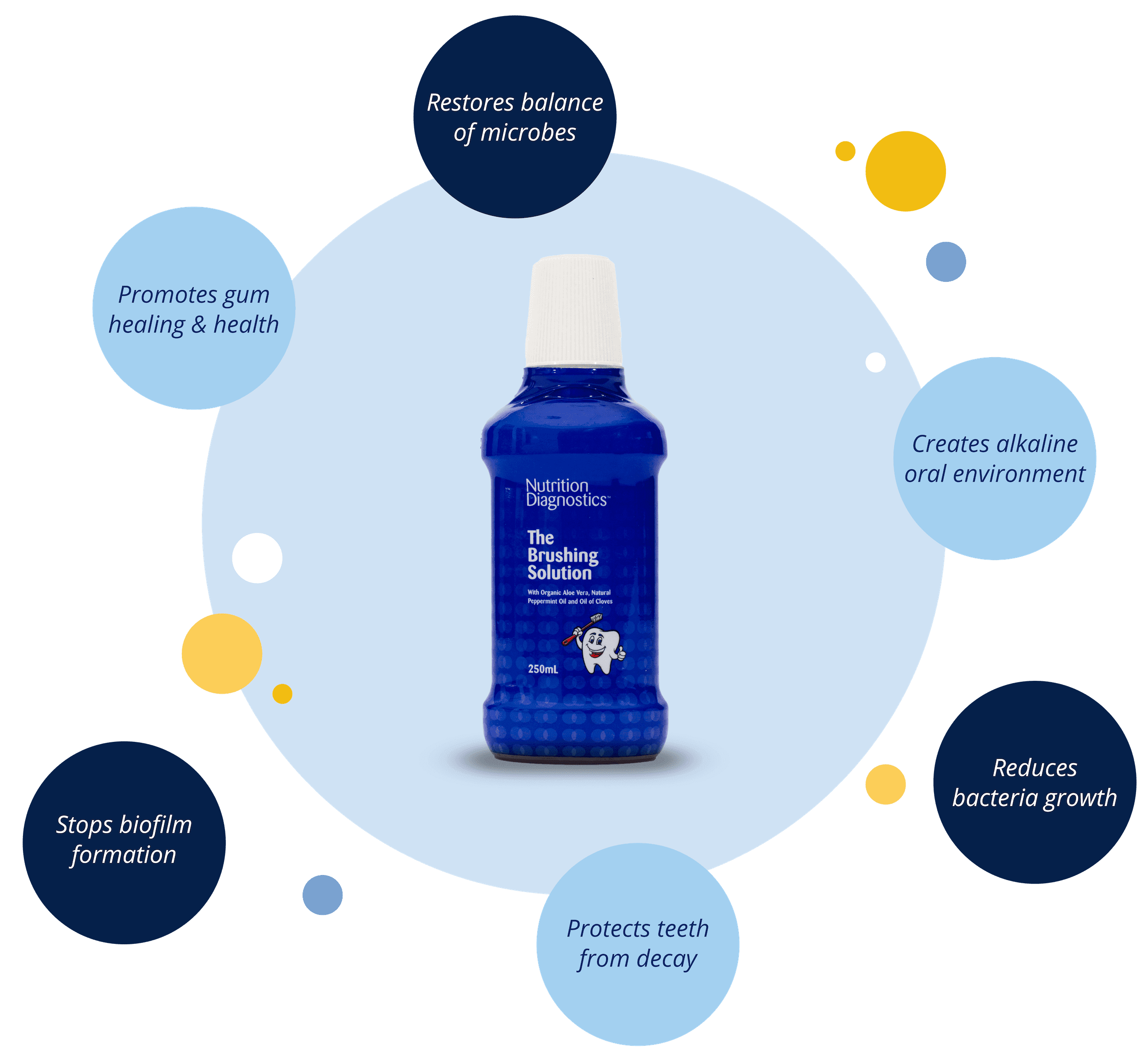How Saliva pH Affects Your Oral Health
We’re taught to brush our teeth and avoid sugar, but rarely are we taught about the importance of saliva and maintaining saliva pH when it comes to our oral health. In fact, saliva pH is one of the best measures of oral health or lack thereof.
Saliva pH Explained
pH stands for ‘potential hydrogen’, and it is a scale (ranging from 0 - 14) used to measure the acidity or basicity of aqueous solutions. Made from 98% water, saliva is an aqueous solution, so its acidity can be measured in pH. So, if saliva is acidic, it will have a low pH, whereas if saliva is more alkaline, it will have a higher pH.
Saliva pH is one of the best ways to measure oral health, as acidic saliva (low pH) is indicative of poor oral health. This is because harmful bacteria and microbes thrive in highly acidic environments but struggle to survive in alkaline environments (defined as a pH of 7 and above).
What is the pH of Saliva Normally?
The normal pH of saliva ranges between 6.2 - 7.6, with 7 and above being optimal. As a side note, this is why we
balanced our toothpaste substitute, The Brushing Solution,
to a neutral pH of 7.

What Affects pH of Saliva?
One of the biggest contributing factors to the pH of saliva is food and drink. As you can imagine, a healthy diet
tends to create balance in the mouth, whereas a poor diet will often create acidic saliva. To put this in context,
here are a few drinks that commonly lower the pH (and increase the acidity) of saliva:
- Soft drinks
- White wine
- Coffee
When consuming such food and drink, saliva pH will drop and the excess acidity begins to demineralise the tooth enamel.
Thus, persistently high acidity results in increased sensitivity of the teeth and, ultimately, tooth decay. Cavities
aren’t the only problem, though. Harmful bacteria and microbes proliferate in acidic environments, which can lead to gum
loss
and periodontal disease. It’s also worth noting that these foods and drinks don’t just affect the pH
of saliva. They also tend to inhibit endocrine function, which reveres dentinal fluid flow - further exacerbating
poor oral health.
Other Causes of an Acidic Mouth
It’s not just saliva that is meant to be balanced to a neutral pH of 7, but the whole mouth. So, when saliva production is inhibited, or the mouth dries out, it tends to be acidic. One of the most common causes of an acidic mouth is breathing through the mouth instead of the nose. Often, this is the result of an airway blockage, which also results in snoring and sleep apnea.
How to Maintain Proper Saliva pH
While eating a properly formulated diet will certainly help in restoring or maintaining a balanced saliva pH, there are a few other
factors to be aware of, and we have discussed here https://www.ericdavisdental.com/facial-orthotropics-for-your-child/why-raise-unhealthy-children/why-decayed-teeth/
Paradoxically, many mouthwash products are highly acidic and can negatively affect saliva pH.
How Mouthwash Can Create Acidic Saliva
As we outlined in a previous article, many generic types of mouthwash contain harmful ingredients like alcohol, poloxamer 407, sodium saccharin, parabens, phosphoric acid and cetylpyridinium chloride. Alcohol is a significant ingredient in many mouthwashes, where its function is to kill germs. Alcohol is both a drying agent - meaning it reduces the amount of saliva in the mouth - and highly acidic, which means it disrupts the pH of saliva. Similarly, phosphoric acid is a common ingredient in mouthwash (and soft drinks) and is highly acidic - disrupting pH balance.
This is why we have created our mouthwash in
conjunction with our sister clinic, Nutrition Diagnostics. Made with all natural ingredients and balanced to a neutral pH of 7,
it is specifically designed to restore saliva pH to optimal levels. You can learn more about its benefits here.

